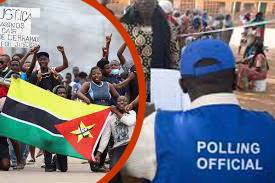Why Voters in Ghana and Africa Are Kicking Out Incumbent Governments
Introduction
The political landscape in Africa is changing, and Ghana is at the center of this transformation. More than ever before, voters are rejecting incumbent governments in favor of new leadership, a trend that is gaining momentum across the continent. What’s causing this political shift? And why are voters in Ghana, Botswana, and other African nations choosing to remove ruling parties from power? In this blog post, we explore the key factors driving this change and what it means for the future of democracy in Africa.
Growing Discontent with Economic Hardships
One of the primary reasons for the shift in voter behavior is economic struggles. Across Africa, rising inflation, unemployment, and the high cost of living have left citizens frustrated. In Ghana, for example, the local currency has been depreciating, making it difficult for businesses and individuals to thrive. The high cost of food, fuel, and basic necessities has put immense pressure on households, and voters are holding their governments accountable.
Similarly, in Botswana, economic growth has slowed down despite the country’s rich diamond reserves. People are questioning why their resources are not translating into better living conditions. As a result, they are voting against ruling parties in search of new leaders who promise economic relief.
Corruption and Mismanagement in Government
Another key reason why voters are removing incumbents is widespread corruption. Reports of government officials misusing public funds, engaging in shady deals, and failing to deliver on promises have left citizens disillusioned. In Ghana, multiple corruption scandals have surfaced, leading to a lack of trust in the ruling party. Many voters believe that fresh leadership is needed to restore integrity to government institutions.
Corruption is not unique to Ghana. Across Africa, ruling parties have been accused of favoring political elites while ignoring the needs of ordinary citizens. This has fueled public anger and led to calls for change at the ballot box.
A New Wave of Youth Activism and Political Awareness
The youth of Africa are more politically aware than ever before. With the rise of social media, platforms like Twitter, Facebook, and TikTok have become powerful tools for mobilization. Young people in Ghana and other African countries are using these platforms to share political opinions, expose corruption, and demand accountability from their leaders.
Many young voters are tired of the old political class and their repeated failures. They are pushing for progressive policies, job opportunities, and better governance. Unlike previous generations, they are not afraid to challenge authority, and this boldness is translating into election results where ruling parties are being voted out.
The Role of Independent Media and Investigative Journalism
Independent media has played a significant role in shaping political outcomes in Ghana and across Africa. Investigative journalists are exposing scandals, educating voters, and holding politicians accountable. Unlike in the past, where governments controlled the media narrative, today’s digital age allows independent journalists to report freely on political misconduct.
This access to truthful reporting has empowered voters to make informed decisions. They are no longer influenced by propaganda but instead are using factual information to decide which leaders deserve their votes.
The Demand for Better Governance and Accountability
More than ever, African voters are demanding transparency, efficiency, and accountability from their governments. They want to see real change, not just empty promises. In Ghana, for instance, people expect leaders to tackle problems such as poor infrastructure, failing healthcare systems, and inadequate education policies.
When ruling parties fail to deliver, voters are now more willing to remove them and give opposition candidates a chance. This is a shift from the past, where incumbents often won re-election due to a lack of strong opposition or voter apathy.
Recent Examples of Incumbent Governments Losing Power
Ghana: In recent elections, former President John Mahama won after defeating the ruling party, signaling a demand for change. Voters were frustrated with economic struggles and governance failures.
Zambia: In 2021, opposition leader Hakainde Hichilema defeated incumbent President Edgar Lungu, as citizens demanded economic reforms and an end to corruption.
Nigeria: The 2023 elections saw a major shake-up in political dynamics, with new political forces gaining popularity as voters sought alternatives to the traditional ruling parties.
Malawi: In 2020, opposition candidate Lazarus Chakwera won the presidency after a court annulled the previous election due to fraud, marking a victory for democracy.
These examples show that African voters are no longer accepting poor leadership. They are taking action at the polls and reshaping their nations' political landscapes.
What This Means for Future Elections in Africa
The trend of voting out incumbents is likely to continue as more Africans become politically active. Future elections will be shaped by:
Greater youth participation in politics and governance.
Increased use of technology to monitor elections and prevent rigging.
Higher demand for accountability from elected officials.
Stronger opposition parties challenging ruling parties.
Ghana, as a leading democracy in Africa, will continue to set an example for other nations. If leaders fail to deliver on their promises, voters will not hesitate to replace them with candidates who offer better policies and governance.
Conclusion
The wave of political change in Ghana and Africa signals a new era of democracy on the continent. Voters are becoming more aware of their power and are using it to hold governments accountable. Economic hardships, corruption, and poor governance are no longer tolerated, and citizens are actively seeking leaders who can bring real progress.
As Ghana and other African nations prepare for upcoming elections, one thing is clear: the people have spoken, and they demand better leadership. Will the ruling parties learn from these lessons, or will they continue to face electoral defeats? Only time will tell, but one thing is certain—the age of unquestioned incumbency is over.


